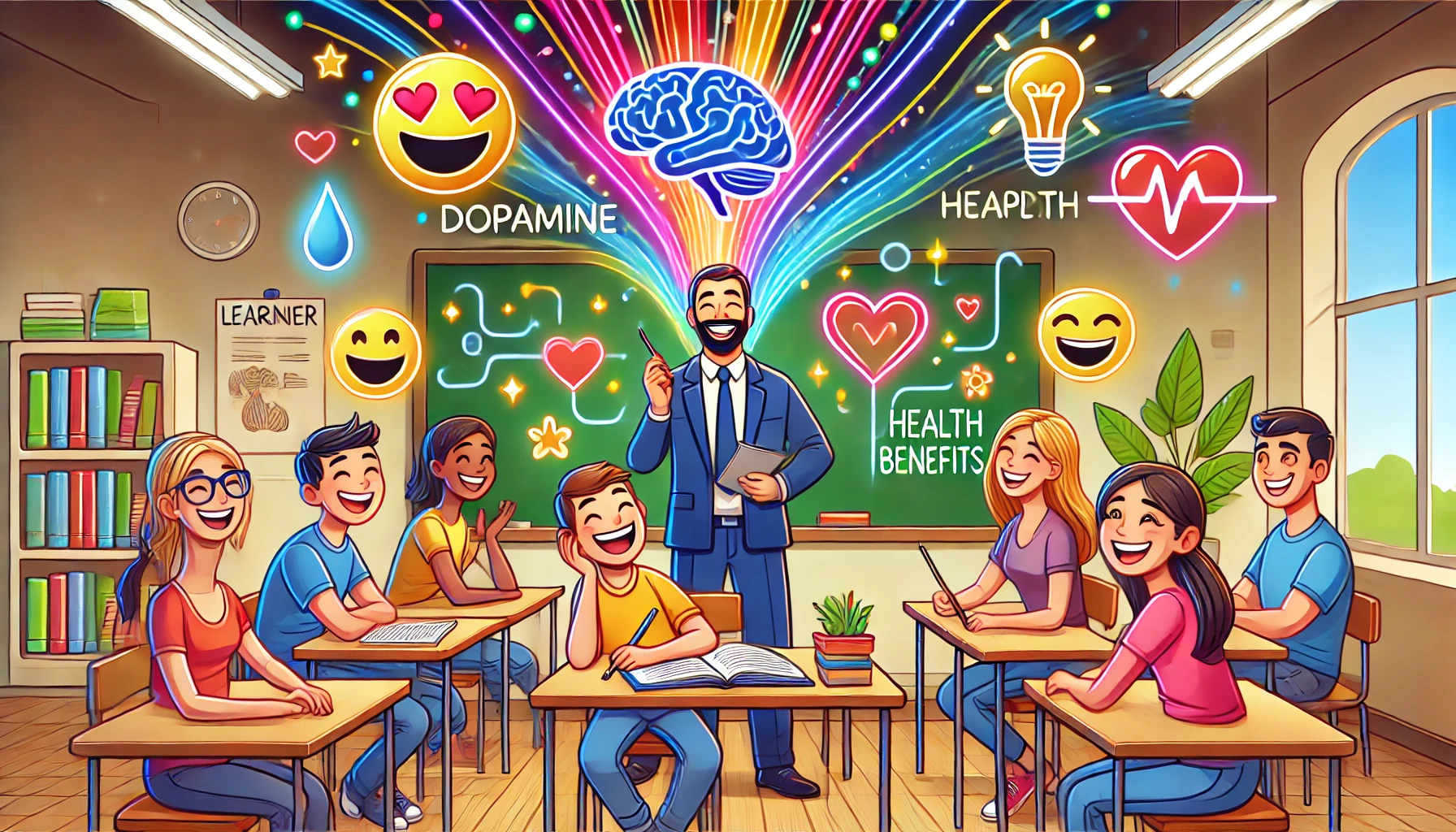Imagine this: you’re in class, stressed about deadlines, and then your teacher cracks a joke that leaves the room laughing. Suddenly, everything feels lighter, and you’re more focused. Ever wonder why? Science says laughter isn’t just fun—it’s a secret weapon for learning, health, and connection!
Here’s the deal: emotions like stress, fear, joy, and laughter are powerful. They influence how your mind and body function. Among these, laughter stands out as a universal language that everyone understands. It’s like nature’s built-in mood booster and stress buster.
The Power of Laughter in Learning
Laughter doesn’t just make you feel good—it actually makes you smarter. Studies show that humor can:
- Grab and Keep Attention: A funny story or joke keeps your brain alert and engaged.
- Reduce Stress: Laughter lowers stress hormones like cortisol, so you can focus better.
- Boost Participation: A fun learning environment makes you want to join in.
- Increase Motivation: If learning feels enjoyable, you’re more likely to stick with it.
Teachers who aren’t afraid to laugh at their own mistakes show students that it’s okay to mess up. This approach builds trust, strengthens relationships, and makes learning less intimidating.
How Humor Improves Health
Laughter is basically a mini workout for your body. It stimulates systems that:
- Decrease stress hormones (bye, cortisol and adrenaline!).
- Activate the brain’s reward center (hello, dopamine!).
- Improve your mood, focus, and energy levels.
The best part? You don’t need a stand-up comedy routine to feel these effects. A little self-deprecating humor or a relatable meme can go a long way.
Laugh Smart
To get the full benefits, humor needs to be inclusive—not mean or offensive. Relevant, light-hearted jokes tied to what you’re learning are the most effective.
So, whether you’re a student, teacher, or just someone looking to feel better, don’t underestimate the power of a good laugh. It’s not just fun—it’s a tool for health, learning, and building connections.
Inspired by the findings of Savage, Lujan, Thipparthi, and DiCarlo, this approach to humor is backed by science. Now, go ahead—crack a joke or watch that silly cat video guilt-free. It’s good for you!




